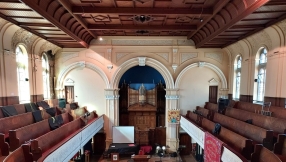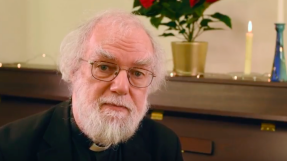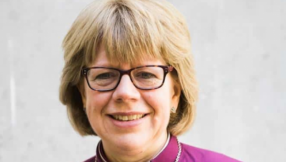Contrary to conventional wisdom, the more British Muslims practise their religion and attend mosques, the more engaged and integrated they are with society.
That is the surprising conclusion of a new academic paper entitled Mosques and political engagement in Britain: participation or segregation? by Dr Siobhan McAndrew and Maria Sobolewska, lecturers at the Universities of Bristol and Manchester respectively.
The academics found that while there is no evidence that higher levels of mosque attendance and religious observance results in less integration, there is some evidence that they mean that British Muslims are in fact more integrated.
At the same time, lower mosque attendance correlates with 'a sense of social distance' from society, according to the research.
The authors write that 'we find no evidence that more frequent mosque attendance hinders the political integration of British Muslims, and some that it promotes it. To the extent that mosque attendance encourages or at least does not prevent social contact with other ethnic groups and a sense belonging, lower attendance correlates with a sense of disengagement, perceived Islamophobia, and a sense of social distance'.
They conclude that 'those Muslims who attend mosques do not live separate lives away from mainstream society'.
And they state that 'frequent attenders are as likely as those who do not attend to feel that they have something in common with other British people; more likely to have friends outside their ethnic or religious group; and overall more likely to engage in mainstream British politics given rates of engagement among British Muslims which are already high. In sum, our results support an optimistic interpretation of Muslim civic and political integration in Britain, and the pro-social benefits of religious involvement.'
Instead, 'it is the non-religious predictors, such as the perception of prejudice and the feeling of social distance from whites, that are a more solid predictor of political disengagement and oppositional engagement than religious involvement'.
The paper points out that there are popular myths about mosques in the UK.
'Media portrayals have depicted some mosques as fostering traditionalism, radicalisation, and cultural divides between British Muslims and others,' it says.
'With the belief that Islam constitutes a threat to British values so widespread, the possibility that mosques may play an important role in the integration of Muslims into British society and politics may appear counterintuitive.'
As the academics point out, a small number of mosques have been associated with radical Islamism, most notably the former Finsbury Park mosque with Abu Qatada and Abu Hamza in the 1990s and early 2000s, and which a number of terrorists attended, including the 'shoebomber' Richard Reid and Zacarias Moussaoui, the 'twentieth hijacker' from the attacks of September 11, 2001.
The police, Home Office and Charity Commission monitor mosques' links and political ideologies closely, and the 2011 version of the Prevent Strategy also suggested that 'radicalising locations' include mosques.
Yet as the researchers point out, 'a good deal of academic research shows that religious participation is generally pro-social: people who participate in communal religious events tend to be more active in civic and political associations, and have more social and political capital'.
Nonetheless, distrust of religious Muslims remains high in a country whose politicians and media often portray mosque-attendance as linked to 'radical Islam'.
The authors write: 'When discussing radical Islam, integration and the role of mosques, politicians are often careful to emphasise that most Muslims in Britain are peace-loving and loyal Britons. Evidence regarding public distrust of Muslims...by non-Muslims, however, suggests that these caveats are empty in effect.'
Dr McAndrew told Christian Today: 'Regular attendance at a place of worship is good for fostering trust and civic activity, regardless of the faith community in question. We also know from previous research that religious people are known to show higher support for existing political arrangements - in that sense, regular attendance is a force for integration. We accordingly were unsurprised to find these effects for British Muslims, just as they have been found for Christians and others.
'A good deal of American research has shown that places of worship host friendship groups, and in turn, being active in the community. In historically black churches, for example, regular attendance has been found to promote a sense of agency and the capacity for civic engagement.
'Despite media and political discourse that Muslim religiosity promotes separateness, in our research we found no evidence for this, and some that it actually promotes civic involvement and political integration. Moreover, the factors predicting disengagement are similar to those for people who are not Muslim: for example, there are strong generational differences. Although we looked specifically at the effect of mosque attendance, rather than measures of secular involvement more broadly, we suspect that disengagement and active opposition may relate rather more to isolation from social life, or perhaps to have more of an online character.'













